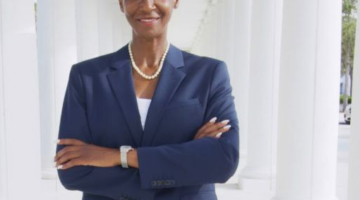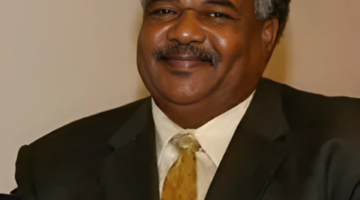With the passing of civil rights legends Benjamin Hooks and Dorothy Height within days of each other, the national landscape in the fight for equality continues to shift. Hooks, a former lawyer, judge and NAACP director, died April 15 in Memphis. Height, 98, president of the National Council of Negro Women for 40 years, passed away on April 20 at Howard University Hospital in the nation’s capital.
While some question whether organizations like the NAACP and Urban League are still relevant, U.S. Attorney General Eric Holder, in a recent speech to the Student Nonviolent Coordinating Committee, contended that black people and other minorities are still disparately affected in myriad ways.
The nation’s first black attorney general, speaking at a conference marking SNCC’s 50th anniversary, said the civil rights movement made tremendous progress, most notably helping to create a climate in which a black American could be elected president.
But in almost everything, from the effects of the Great Recession to the criminal justice system, Holder said, disparities persist.
“It will take more than the election of the first African-American president to fully secure equality for each American,” he said.
The economic downturn has affected blacks to a greater degree than other Americans, he said, with unemployment among young black males the highest it’s been since the 1930s. And legal disparities such as stiffer sentences for people caught with crack cocaine than for powder cocaine contribute to a system in which blacks and Latinos get longer prison terms than their white counterparts, he said.
Germaine Smith-Baugh, president and CEO of the Urban League of Broward County, said her generation of leaders has the “responsibility, accountability and opportunity,” to continue the fight that leaders like Hooks and Height began. And although that fight looks different, she said, “It’s still a fight.’’
She continued: “For them, it might have been the segregation of schools and the disparities… for us we look at a drop-out rate of close to 50 percent of black boys. That’s an injustice,” said Smith-Baugh, 37, who has led the Broward organization for three and a half years.
Smith-Baugh and Height are both members of Delta Sigma Theta, Inc., one of the nation’s oldest black sororities. Of the opportunity to meet her esteemed sorority sister, Smith-Baugh said, it was “truly an honor. As usual, she was dressed to the nines.”
Height’s impact on her, Smith-Baugh said, has been monumental.
“Being a woman, trying to move an organization forward in terms of addressing community issues, she was simply iconic,” Smith-Baugh said.
In his statement on Height’s death, President Barack Obama noted that a college once denied entry to Height because it had already met its quota of two African-American women.
“Dr. Height devoted her life to those struggling for equality,” the president said, and witnessed “every march and milestone along the way.”
Born in 1912, Height was a fierce orator who went on to win the Congressional Gold Medal, the highest civilian award in the United States. When King delivered his famous “I Have a Dream” speech in 1963, Height was the only woman on the stage.
She often quoted abolitionist Frederick Douglass on how best to achieve justice: “Agitate, agitate, agitate.” Determining the best approach to agitate in an era that produced the first black U.S. president has been a challenge for the country’s most prominent civil rights groups.
The national NAACP, in an attempt to reinvigorate the 100-year old institution, elected 37-year old Benjamin Jealous as president in 2008. In February, the NAACP selected Rosalyn Brock as its youngest ever and fourth female chairman of the board.
Brock replaced longtime civil rights leader Julian Bond, who was instrumental in the selection of Jealous and Brock.
But while the national NAACP is plowing ahead with new, younger leadership, another civil rights organization is suffering from internal fighting and criminal investigations. The 53-year old Southern Christian Leadership Conference (SCLC), which was founded by King in 1957, has splintered into two separate groups. King’s youngest daughter, the Rev. Bernice King, was elected as the group’s president in October, but it is unclear whether she will be officially installed.
Smith-Baugh said she is clear about her mission with the Urban League, likening Height’s accomplishments and death to a relay race for social justice that includes older and younger leaders. “If she was able to do it with the resources and challenges that she faced, then I definitely have to pick up the mantle and continue to run with the baton.”
RMHarris15@Aol.com
This story was supplemented with reports from The Associated Press.
Photo: Dorothy Height











No Comment